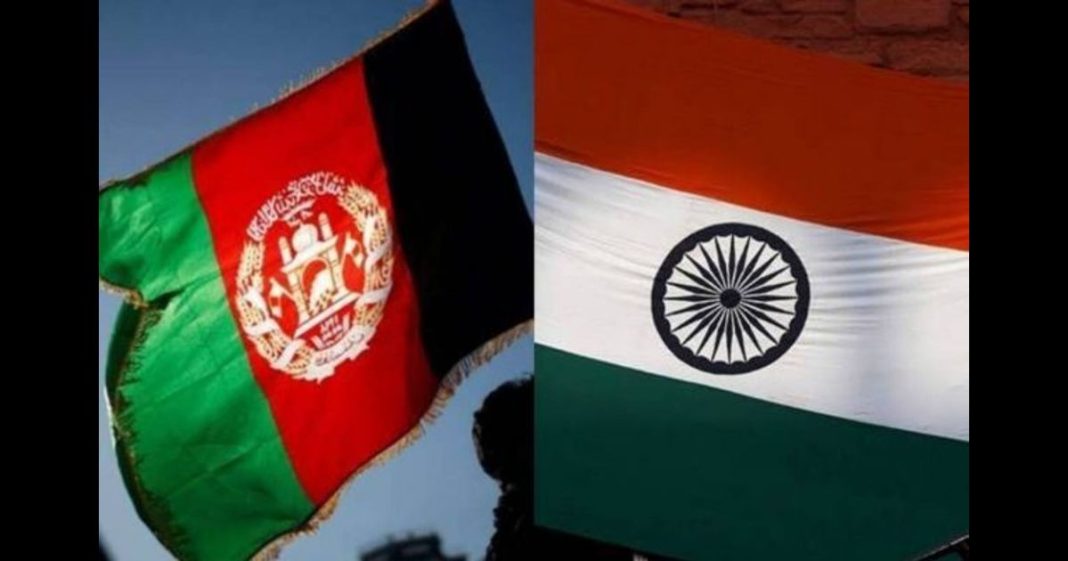National interests are paramount in establishing ties between the states, as it is considered a significant component in international relations. Engagement is the best solution to resolve any difference between the states. However, post-withdrawal of allied forces from Afghanistan, no one can deny that the Taliban regime is a reality, and engagement with them can ensure regional security and stability. India has also begun to realize and act on its strategic interests in the Taliban-governed Afghanistan and has continued to pragmatically engage with the Islamic Emirate.
Still, no government has recognized the Taliban as the legitimate rulers of Afghanistan, but India believes national interests could be achieved through limited engagement. India is neither a geographical nor can be a strategically natural ally to the Taliban. Hence, its rapprochement with the Taliban regime is both economic-strategic initiatives and Pakistan-centric.
Read more: How do Russia, Pakistan, China, Iran and India view the Taliban’s rise in Afghanistan?
Has India changed its strategy towards the Taliban?
In the past, India has always viewed the Taliban as a proxy of its archrival Pakistan and also maintained close ties with the northern alliance against the Taliban. India has renewed its engagement policy with the Taliban and on 2nd June 2022, a high-level Indian delegation led by J P Singh, the External Affairs Ministry’s Joint Secretary held a meeting with the Taliban’s acting Foreign Minister Amir Khan Muttaqi in Kabul. This was the first-ever official visit by the Indian officials to the Afghan capital since New Delhi shut down its embassy in Kabul following the Taliban’s return to power in August 2021.
However, the delegation desired to re-open its embassy equates to official recognition of the Taliban regime. Taliban regime has been a hurdle in the way of Indian support to anti-Pakistan subversive activities using Afghan soil therefore New Delhi is all set to give a legitimate cover to her ulterior motives for having good ties with Afghanistan.
Historically, after decades of open hostility, India has moved closer to reviving its diplomatic ties with the Afghan Taliban. India’s approach to the current Taliban regime is different from the past because during the first Taliban regime from 1996 to 2001 India neither extended its recognition nor had a diplomatic presence in Afghanistan. New Delhi did not engage Taliban officials; in fact, it supported the anti-Taliban resistance at the time. After the fall of the Taliban regime, India supported successive governments in Kabul and extended massive aid toward the country’s socio-economic development. India provided training to Afghan security forces, police, civilian officials, and teachers.
In addition to an embassy in Kabul, India had consulates in Herat, Kandahar, Jalalabad, and Mazar-e-Sharif. It has been claimed that these consulates were involved in subversive activities against Pakistan. It is important to mention here that India abruptly reduced its footprint from Afghanistan with the Taliban returning to power. She closed its embassy and consulates. During anti-Pakistan and India-friendly Afghan previous regimes, New Delhi had free reign to arm and finance terrorist groups to carry out subversive activities against Pakistan. After the fall of Kabul, India was among the most eager nations that closed their missions in Afghanistan while leaving behind “friendly” Afghanistan in chaotic conditions.
Read more: Taliban schools Indian journalist, says claims against Pakistan is propaganda
On the other hand, Pakistan putting aside animosity has granted India permission to send wheat and lifesaving medicines to Afghanistan through Wagah Border on an exceptional basis for humanitarian purposes. While Indian efforts to gain its influence in Afghanistan are aimed at preventing Pakistan’s influence in Afghanistan. India’s role as a spoiler in Afghanistan and the region is well known. In this context, Indian efforts to project Pakistan as an aggressor and exploitation of the situation in Afghanistan can be gauged, post-Taliban control of Kabul, Indian TV channels broadcasted video purporting to show Pakistani aircraft attacking Panjshir but in reality, the video was depicted American jets flying in Wales.
The way forward
India’s Arnab Goswami claims that Pakistan’s ISI officers are staying on the fifth floor of Serena Hotel Kabul and meddling in the affairs of Afghanistanwhereas there was no such floor in the building. However, Taliban spokesperson Suhail Shaheen in an interview with India Tv9 denied all these claims.
The growing engagement between Indian and Taliban officials indicates that New Delhi has economic and strategic ambitions in Afghanistan and the Central Asian states, which cannot be fulfilled without establishing ties with the current Afghan rulers. India sees benefit in having trade and other economic connections with a major provider of oil and natural gas. It has also wanted to establish a broader security horizon with Central Asian countries as a counterbalance to its adversaries. Extending aid and developing trade and diplomatic ties with the Taliban regime are seen as ways to prevent it from acting against Indian interests.
Read more: Talks between the Government of Pakistan and the TTP
Though Indian officials have made it clear that a diplomatic engagement with Kabul does not mean recognition of the regime but somehow it indicates defacto recognition of the Taliban regime. In nutshell, it is the right time when regional states should collectively initiate a diplomatic effort to find a regional solution for the crisis in Afghanistan. A collective effort can ensure that no country would use the prevailing situation for their benefit and thus turning Afghanistan into another battlefield of proxies.
The author is an Islamabad-based analyst and holds MPhil in Peace and Conflict Studies and can be reached at sarahamidkhan21@gmail.com. The views expressed in this article are the author’s own and do not necessarily reflect the editorial policy of Global Village Space.













